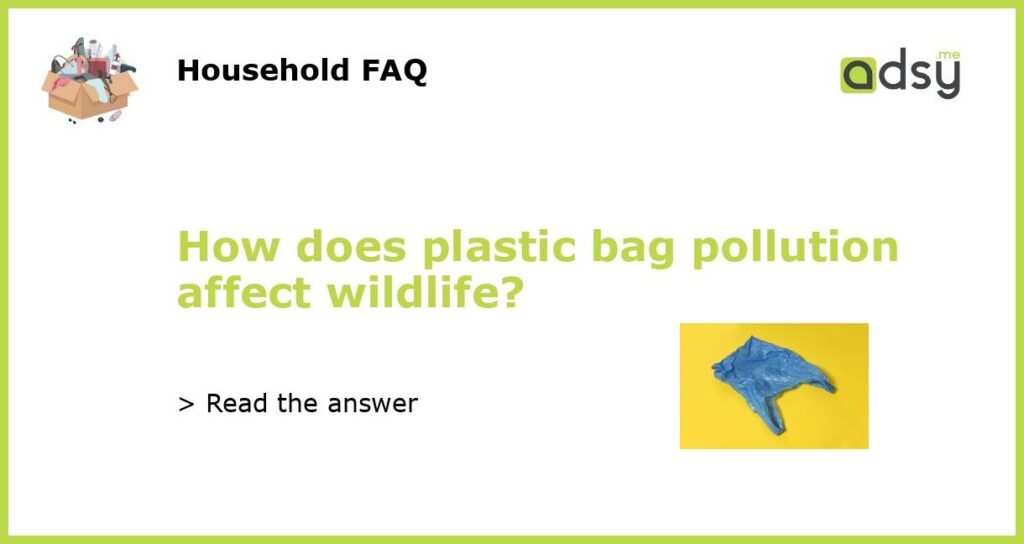Impact of Plastic Bag Pollution on Wildlife
Plastic bag pollution is a significant environmental issue that impacts various ecosystems, including wildlife. Plastic bags can harm wildlife in several ways, such as ingestion, entanglement, and habitat disruption. However, some creatures are more vulnerable to plastic bag pollution than others.
How Plastic Bags harm Marine Animals
Marine life is particularly at risk from plastic bag pollution, as plastic bags can impact their habitat, food sources, and cause death. Sea turtles, for example, mistake plastic bags for jellyfish, their primary food source, and ingest them, leading to suffocation and starvation. The floating bags can also entangle marine animals, causing injuries, impairing movement, and increasing their vulnerability to predators.
Impact of Plastic Bags on Land Animals
Not just marine animals, but land animals are also impacted by plastic bags. For example, cows and other farm animals can ingest plastic bags while foraging for food or drink contaminated water sources, resulting in numerous health issues. Similarly, plastic bags pose a risk to birds, trapping them in their folds, leading to injuries, or asphyxiation.
How Plastic Bags Disrupt the Ecosystem
Plastic bag pollution can also impact the entire ecosystem. Decomposing plastic bags leach harmful chemicals into the soil and water, leading to soil pollution, water pollution, and air pollution. The toxic chemicals released during the decomposition process pose a severe threat to human health, as they pass through the food chain and accumulate in the living organisms.
What can be done to Reduce Plastic Bag Pollution
Reducing plastic bag pollution is essential to protect wildlife and preserve the environment. Governments worldwide are taking measures to ban or impose a tax on single-use plastic bags. Consumers can also contribute to reducing plastic bag pollution by opting for environmentally friendly alternatives, such as reusable bags or paper bags. Additionally, proper disposal of plastic bags can also help reduce pollution and mitigate the impact on wildlife and the environment.






